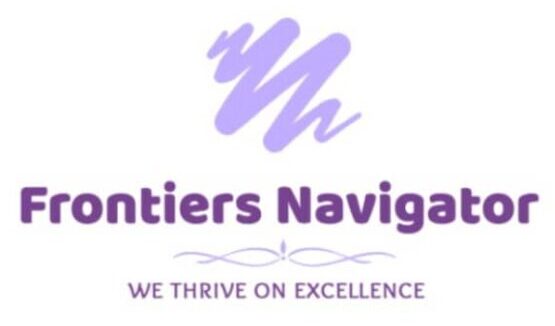
The project-based economy represents a shift towards temporary, contract-based work, focusing on specific projects with defined outcomes. This model is gaining traction globally, including in Nigeria, Africa’s most populous nation. Here, it promises to harness the country’s entrepreneurial spirit and youthful demographic to drive economic growth and innovation.
The State of Nigeria’s Economy and the Shift Towards Project-based Work
Nigeria’s economy, traditionally reliant on oil, is witnessing a gradual shift towards more diversified and innovative economic activities. The project-based economy stands out as a viable path forward, offering flexibility and opportunities for both employers and workers.
Benefits of a Project-based Economy in Nigeria
- Enhanced Flexibility and Innovation: Project-based work allows companies to adapt quickly to market changes and fosters a culture of innovation.
- Job Creation: By opening up new sectors and opportunities, project-based work can significantly lower unemployment rates.
- Skill Development: Workers gain diverse experiences across projects, enhancing their skill sets and employability.
Challenges Facing the Project-based Economy in Nigeria
- Infrastructure and Connectivity Issues: Reliable internet and electricity are crucial for project-based work, areas where Nigeria has room for improvement.
- Skill Gap: Bridging the gap between the current education system and the skills demanded by the project-based economy is essential.
- Policy and Regulatory Frameworks: Developing policies that support the project-based economy while protecting workers’ rights is necessary
In Nigeria, the project-based work landscape is being shaped by a diverse range of initiatives across sectors like technology, entrepreneurship, and job creation, demonstrating the country’s commitment to leveraging project-based models for economic growth and development.
The International Labour Organization (ILO) has played a pivotal role in this regard through the Nigerian Youth Employment Action Plan (NIYEAP), launched in collaboration with the UN Department of Economic and Social Affairs. NIYEAP aims to create decent, productive employment for young Nigerians by focusing on Employability, Entrepreneurship, Employment, and Equality. This plan is part of a broader effort to address youth unemployment in a comprehensive and coordinated manner, reinforcing existing policies and initiatives. It is a clear example of project-based efforts aimed at enhancing job creation and youth empowerment in Nigeria.
In terms of building skills and promoting innovation, Nigeria has shown significant achievements, particularly in the tech and creative sectors. The country has emerged as a leader in these areas, driven by a thriving innovation landscape. To tackle the challenge of digital transformation and the 4IR (Fourth Industrial Revolution), partnerships between organizations like the Project Management Institute (PMI) and Nigerian universities aim to promote citizen development. This initiative allows individuals, even without formal software skills, to learn and use low-code/no-code platforms, demonstrating a project-based approach to skilling youth for the future.
Furthermore, the PMI highlights the importance of project management skills, emphasizing a comprehensive skill set known as the talent triangle, which includes technical skills, power skills (such as empathy and effective communication), and business acumen. This framework is crucial for nurturing skilled project managers in Nigeria, who can drive the successful implementation of projects across various sectors. Such efforts are vital for the country’s economy and align with the African Union Agenda 2063, which relies heavily on projects to achieve inclusive and sustainable development across the continent.
The Nigerian tech startup ecosystem has showcased significant growth and success over the years, attracting substantial investment and generating notable success stories, even amidst global economic uncertainties and local challenges. In 2021, the ecosystem was particularly vibrant, with Nigerian tech startups raising $1.7 billion, a testament to the attractiveness of the Nigerian market to investors. This influx of capital led to the creation of three new unicorns (Flutterwave, OPay, and Andela), demonstrating the high potential for scalability and impact within the sector.
Despite global economic challenges and a slowdown in investment activities that began in 2022 and continued into 2023, Nigerian startups have continued to innovate and expand. Companies like Bamboo, Moove Africa, Reliance Health, Flutterwave, Umba, Omnibiz, Vendease, TeamApt, Interswitch, and Yellow Card have made significant strides in their respective fields, ranging from fintech to healthcare, and digital banking to agritech. These startups have not only attracted substantial investment but also expanded their operations and impact across Nigeria and beyond, adapting to market demands and leveraging digital innovations to solve critical problems.
However, the Nigerian startup landscape has faced its share of challenges, including a dip in funding in 2023 due to a global slowdown in investment activities. Despite this, the underlying fundamentals of the Nigerian startup ecosystem remain strong, buoyed by a large, young population and a significant market size that continues to attract investor interest. The resilience and ingenuity of Nigerian entrepreneurs have been key to navigating these challenges, with startups continuing to seek innovative solutions to pressing societal problems.
The Nigerian startup ecosystem’s adaptability and resilience, combined with ongoing efforts to engage with government and regulatory bodies for a more favorable business environment, underscore the potential for continued growth and innovation. With a focus on solving real problems and leveraging digital technology, Nigerian startups are poised to maintain their upward trajectory, contributing significantly to economic development and societal progress in Nigeria and across the African continent.


